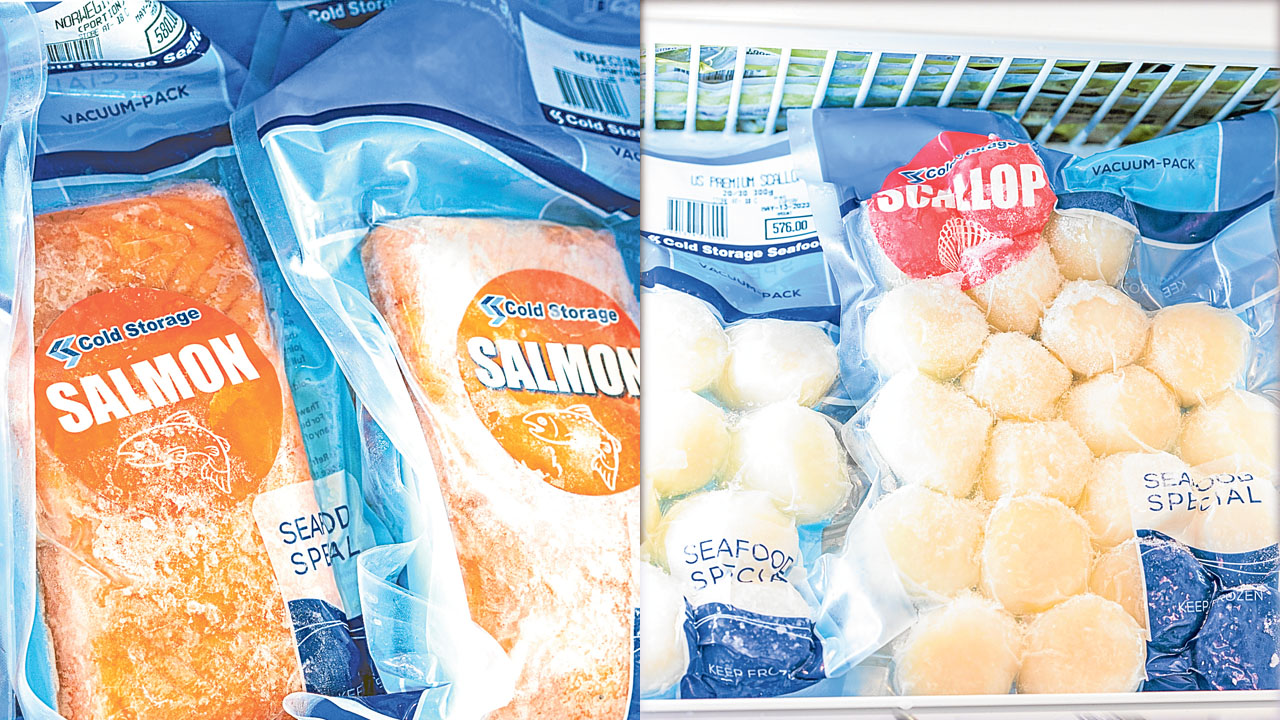This Lenten season, the Christian/Catholic faithful are encouraged to fast and/or abstain. According to the Catholic website Dominus Est (DominusEst.PH), fasting is reducing one’s intake of food to one meal a day or two small meals that count as one meal. Abstinence is stopping intake of meat from mammals and fowl, including soup made from these, and is usually done on Fridays. It’s time, then, to go pescatarian!
Marco Qua, president of Cold Storage, which imports and packs seafood from all over the world, has tips on how to know if your seafood is fresh.
First, purchase fresh from the market or at least from reliable brands that practice sustainable and ethical sourcing. For Cold Storage, he shares, they attend trade shows to really search for partners who are not only committed to sustainability but have the papers to prove it.
Second, purchase seafood from a place of origin that already has a reputation for quality seafood. For example, for salmon, we know Norwegian salmon is excellent. The Patagonia region in Chile has also earned a reputation for producing good salmon. For scallops, the United States has a very good reputation. U.S. wild-caught Atlantic sea scallop is sustainably managed and responsibly harvested under U.S. regulations.
Third, look for quality. This is a given. But how do you know that what you are purchasing is quality seafood? Here are more tips: For salmon, make sure the color is consistent, not overly pink or orange. It must also be carefully handled to avoid bruising and maintain the natural structure. For halibut, like salmon, avoid discolorations such as spots on the flesh and skin or green or yellow fat. For scallops, keep an eye out for discoloration as well as freezer burn, which makes its quality deteriorate. Also, pat each piece dry before cooking.
Then you not only get points in heaven; you get health benefits, too! Salmon is rich in protein, omega-3 fatty acids, nutrients like B12 and B6 and micronutrients like selenium and niacin. Halibut is also rich in omega-3 fatty acids, selenium and niacin. It also contains phosphorus, which is important for bone health, and magnesium, which aids in muscle movement. You will come out of this fast a healthier, stronger you!
Finally, to be able to maintain your abstinence throughout the 40 days of Lent, make sure that the seafood you feed yourself tastes delicious! If you don’t really cook, you can already get pre-cut packed salmon like Cold Storage’s portion cut, a horizontal fillet that contains both the lean meat and the belly part of the salmon that is best for baking, roasting, grilling or pan-frying. There is also the loin cut, which is all lean meat or all belly and perfect for sushi or sashimi at home. The steak cut is a cross-section of the salmon that includes the spine. For halibut, you can cook this in tomato sauce or en papillote, i.e., in a parchment or foil packet. For scallops, you can simply pan-fry this with brown butter and garlic or sage.
If all this is still too hard for you, just get two orders of the for-Lent-only fish and chips at McDonald’s! Or the veggie burger of Burger King. Or manong’s fishball sa kanto (on the street).
Of course, at the end of it all, we need to remember what fasting and abstinence are really about. It’s not a fad or for diet purposes. Pope Francis emphasized, “Fasting is not a quaint devotion, but a powerful gesture to remind ourselves what truly matters and what is merely ephemeral.”
And what really matters? You’re supposed to realize this at the end of your fast. But in his Ash Wednesday homily that opened the season of Lent, Pope Francis already gave us the answer, “Return to what is essential: it is the Lord.”
Cold Storage. San Juan branch: 216 Wilson Street, San Juan.
Landline 85717711 or 8706 6326. Also available in major supermarkets.
READ MORE:
Filipino Catholics urged to observe ‘no meat’ Fridays
